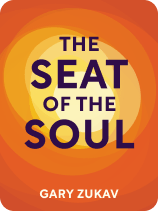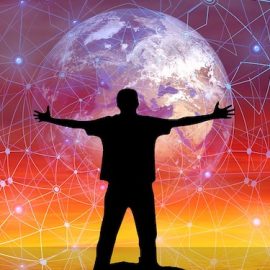

This article is an excerpt from the Shortform book guide to "The Seat of the Soul" by Gary Zukav. Shortform has the world's best summaries and analyses of books you should be reading.
Like this article? Sign up for a free trial here .
What is collective consciousness? How deeply do your actions affect others?
Gary Zukav argues that your choices shape the realities of those you identify with, whether that’s others who share your gender, others who share your nationality, or other humans in general. He asserts that your behaviors carry vibrations that are felt by you and flow out to those around you.
Here’s how Zukav discusses collective consciousness in his book The Seat of the Soul.
Collective Consciousness
What is collective consciousness? Your actions are tied, not just to your soul’s karma, Zukav says, but to that of other souls as well, through “collective consciousnesses.” He explains that your individual reality is one point of consciousness, but you also constantly contribute to energetic exchange with the people around you—your families and friends, peers, random people you interact with, as well as those whom you share identity categories with, your whole society, and ultimately all of humanity. Everyone’s choices have effects on how these “collective consciousnesses” develop, Zukav says, and therefore on many layers of reality. For example, if you’re an American Buddhist woman, you’re part of the collective consciousness that is “women” and that of “Americans” and that of “Buddhists” and so on. And you’re helping to shape the collective realities of those groups—up to and including the collective consciousness of humanity.
| Identity and Connection It’s unclear why specific kinds of identity groups would necessarily have any spiritual link to one another. For example, while it’s understandable that people who belong to the same religion would have a spiritual bond, one’s nationality is an accident of birth, can change over one’s lifetime, and in most cases is not spiritually meaningful. Additionally, the category of race is inherently problematic, as we can’t scientifically distinguish racial groups, and very few humans now belong to a single “racial” group. Sex and gender categories have similar problems as well. Zukav’s theory about the collective consciousness groups that we all belong to is reminiscent of the concept of the karass, invented by Kurt Vonnegut in his 1963 novel Cat’s Cradle. In this exploration of the fictional religion of Bokononism, Vonnegut describes a karass as a group of people who are spiritually linked with one another, to fulfill some cosmic purpose, usually unknown to them. However, Vonnegut distinguishes a karass from a granfalloon, which he defines as a group of people who share some observable commonality, such as members of one’s country or one’s gender. These categories have no spiritual significance, while a karass is spiritually and energetically linked. You can only recognize a member of your karass by a sort of gut feeling you get about a person, but your energies will be intertwined throughout your lifetimes. |
As spiritual beings living in the material world, Zukav says, our true essence is light energy, which flows through us from the universe. So, all of our interactions and behaviors on the material plane have an energetic component as light vibration, he explains: Negativity creates lower vibration energy, and positivity creates higher vibrations. These vibrations are felt by us as our emotions. Higher-vibration emotions, for example, are love and compassion, whereas anger and resentment are lower-vibration emotions. Zukav says this is why you feel lighter and higher when you’re happy, and heavy and dull when you’re unhappy. He also says that lower-vibration people can drain others of energy, and higher-vibration people can raise others up.
Because of these emotional frequencies, Zukav explains, you also will attract others of similar vibration to you, so if you consciously raise your energy, you’ll attract higher-energy people and you can co-create a more enlightened reality together. He says that this energy can be directed by your thoughts, so positive thoughts will create more positive emotions and therefore higher vibration, and vice versa with negative thoughts. So, by consciously choosing your thoughts, Zukav says, you can consciously raise your vibration, and therefore become brighter light energy—this is why we say such high-vibration people are “enlightened.”
| The Law of Attraction The idea that energy attracts like energy is called the law of attraction, which dates back to the New Thought Movement of the early 19th century. This concept is central to the book The Secret, by Rhonda Byrne, which says that your thoughts generate a magnetic energy that will pull that same frequency of energy toward you. Similar to the concept of karma, the law of attraction can affect you negatively or positively, and it happens whether you are conscious of it or not. Byrne argues that you can use this to re-create your life, by consciously directing your thoughts to generate the energy you want to attract. According to Zukav you should try to attract other positive light-energy people to your life, and The Secret tells us that to do that, we should begin with visualization. If you want to attract a certain kind of partner or friends to your life, envision them. Think about every detail of the kinds of qualities they would have, and then believe that they exist and they’ll come to you. Then make space for that person or people in your life, and be open to finding them. |

———End of Preview———
Like what you just read? Read the rest of the world's best book summary and analysis of Gary Zukav's "The Seat of the Soul" at Shortform .
Here's what you'll find in our full The Seat of the Soul summary :
- An exploration into your soul’s purpose
- How to align your life with your soul's purpose
- How humans have become disconnected from their spiritual natures






